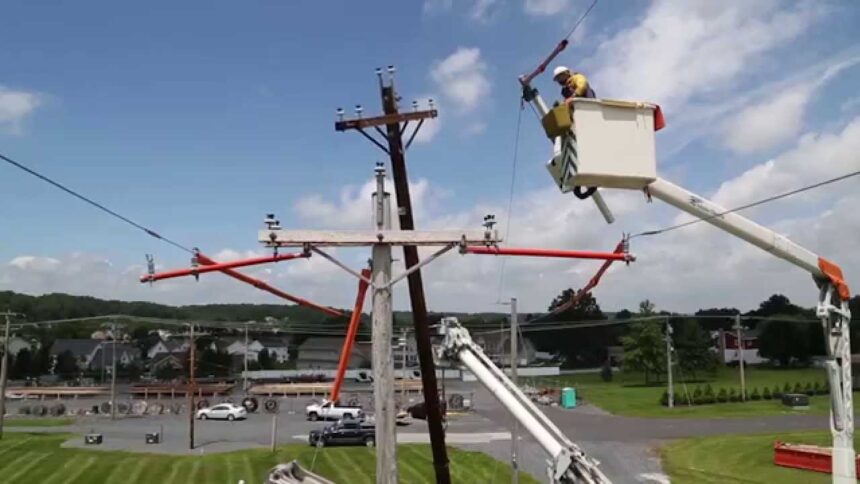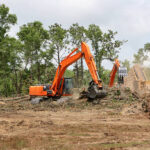When most people think about home improvements or commercial construction projects, pole installation rarely tops the list of exciting topics. Yet this foundational service quietly supports countless aspects of our daily lives—from the street lights that guide us home to the utility poles that power our businesses.
Professional pole installation goes far beyond simply digging a hole and dropping in a post. It’s a specialized craft that requires expertise, precision, and the right equipment to ensure safety, durability, and compliance with local regulations. Whether you’re a homeowner looking to install a flagpole or a business owner needing utility pole services, understanding the value of professional installation can save you time, money, and potential headaches down the road.
The Hidden Complexity of Pole Installation
At first glance, pole installation might seem straightforward. However, experienced professionals know that each project presents unique challenges that require careful consideration and planning.
Underground Utilities and Safety Concerns
Before any pole goes into the ground, professionals must conduct thorough utility locating services. Striking underground gas, electric, or telecommunications lines isn’t just expensive—it’s dangerous. Professional installers coordinate with local utility companies and use specialized detection equipment to map what lies beneath the surface.
This preliminary step alone demonstrates why DIY pole installation often falls short. Homeowners typically lack access to utility locating services and the training to interpret the results accurately.
Soil Conditions and Foundation Requirements
Different soil types require different installation approaches. Clay soil expands and contracts with moisture changes, while sandy soil offers less stability for anchoring. Rocky terrain presents excavation challenges, and areas with high water tables need special drainage considerations.
Professional pole installers assess these conditions and adjust their methods accordingly. They understand when to use concrete footings, when driven posts are appropriate, and how deep to set foundations for maximum stability.
Types of Poles and Their Installation Requirements
The diversity of pole types means installation requirements vary significantly based on the specific application.
Utility Poles
Electric and telecommunications companies rely on professional pole installation services to maintain reliable infrastructure. These poles must meet strict height requirements, support heavy cables, and withstand extreme weather conditions. Installation involves specialized equipment like boom trucks and augers designed for utility-grade work.
Flagpoles
Residential and commercial flagpoles require precise installation to ensure proper flag display and long-term durability. Professional installers consider wind loads, foundation requirements, and local building codes to create installations that honor the flag while standing the test of time.
Sports and Recreation Poles
From basketball hoops to volleyball nets, recreational poles need installations that prioritize both safety and performance. Professional installers understand the specific requirements for different sports applications and can ensure installations meet safety standards while providing optimal playing conditions.
Lighting Poles
Street lights, parking lot illumination, and landscape lighting all require poles installed to exact specifications. Electrical connections, proper grounding, and wind resistance calculations are critical components that professional installers handle with expertise.
The Professional Advantage
Working with experienced pole installation services offers numerous benefits that extend far beyond the installation day itself.
Equipment and Expertise
Professional installers bring specialized equipment designed specifically for pole installation work. Hydraulic augers, boom trucks, concrete mixers, and precision measuring tools enable efficient, accurate installations that would be impossible with standard homeowner equipment.
More importantly, they bring years of experience handling unexpected challenges. When installations hit a roadblock, encounter unexpected utilities, or face weather delays, professionals have the knowledge and resources to adapt without compromising the final result.
Code Compliance and Permits
Local building codes often require permits for pole installations, particularly for larger or permanent structures. Professional installers understand these requirements and can handle the permitting process, ensuring installations meet all local regulations.
This compliance protection is valuable for property owners. Non-compliant installations can result in fines, forced removal, or complications when selling property. Professional installation provides peace of mind that the work meets all applicable standards.
Warranty and Long-term Support
Reputable pole installation companies stand behind their work with warranties and ongoing support. This coverage protects property owners from installation defects and provides recourse if problems develop.
Many professionals also offer maintenance services to keep poles in optimal condition over time. This ongoing relationship can extend pole life and prevent minor issues from becoming major problems.
Cost Considerations and Value
While professional pole installation requires upfront investment, the long-term value often exceeds the initial cost difference compared to DIY approaches.
Avoiding Costly Mistakes
Underground utility strikes can result in thousands of dollars in repair costs and service disruption fees. Improper installations may fail during storms, potentially causing property damage or safety hazards. Professional installation helps avoid these expensive scenarios.
Time and Convenience
Pole installation projects can consume entire weekends for homeowners, especially when complications arise. Professional installers complete most residential projects in a matter of hours, freeing property owners to focus on other priorities.
Quality and Longevity
Professional installations typically last longer than amateur attempts. Proper foundation work, correct positioning, and quality materials contribute to installations that maintain their integrity for decades rather than requiring frequent repairs or replacement.
Choosing the Right Installation Partner
Not all pole installation services offer the same level of expertise and reliability. Property owners should look for several key qualities when selecting an installation partner.
Experience with similar projects demonstrates the ability to handle specific requirements and challenges. Local knowledge helps navigate permitting requirements and understand regional soil conditions or weather patterns that affect installation success.
Proper licensing and insurance protect property owners from liability and ensure the installer meets professional standards. Equipment capabilities indicate the installer’s ability to handle projects efficiently and safely.
The Foundation of Reliable Infrastructure
Professional pole installation represents more than just a construction service—it’s an investment in reliable, long-lasting infrastructure. Whether supporting essential utilities, displaying symbols of pride, or enabling recreational activities, properly installed poles provide the foundation for countless daily activities.
The expertise, equipment, and experience that professional installers bring to each project ensure installations that meet current needs while standing ready to serve for years to come. For property owners considering pole installation, partnering with experienced professionals transforms what could be a complex, risky project into a smooth, successful improvement to their property.


